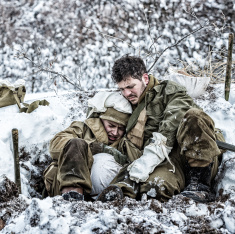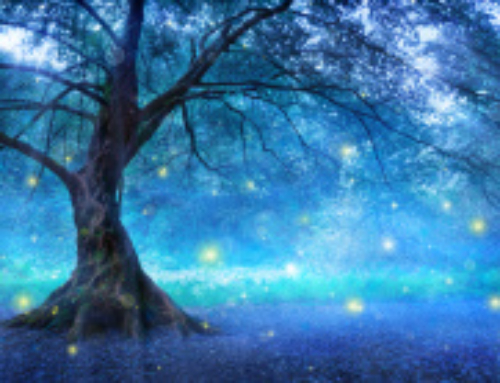Is it possible to feel such deep love for a human being or an animal, to the point that if they were harmed, we would wish to seek vengeance on the perpetrator? The easy answer is yes. The more complex answer is no. Let me explain…on the surface it seems as though our love is propelling us to avenge our beloved who has been harmed but is it really love? Chris Hedges writes, “The initial selflessness of war mirrors that of love, the chief emotion war destroys. And this is what war often looks and feels like, at its inception: love” (War is a Force that Gives Us Meaning 159).
It feels like we are acting out of love because we are motivated by our need to protect those whom we love but the underlying emotion propelling us is fear—fear of losing our beloved, fear that our beloved with never be the same after this pain and trauma (it may resonate more clearly to use the word anger in place of fear). If we are destroying anything we are not acting from love. Dr. Martin Luther King, Jr. teaches, “If one is in search of a better job, it does not help to burn down the factory. If one needs more adequate education, shooting the principal will not help, or if housing is the goal, only building and construction will produce that end. To destroy anything, person or property, can’t bring us closer to the goal that we seek” (A Testament of Hope 58).
This doesn’t mean we let the perpetrator off the hook by discounting the consequences of the harmful action. It means we free ourselves from the chains that come from resentment, anger, and revenge. Love is about healing. An act of love focuses our attention on our beloved, and their process of healing, not on the perpetrator and the need for righting the wrong.
Emotions become very complex when we are pushed beyond our capacity, especially situations where we are experiencing trauma cause by violent crimes. My guess is, most of us would contemplate taking vengeance on a predator who harmed our child or spouse. Many of us would contemplate taking vengeance on a predator who harmed any child or innocent human being. These strong emotional reactions are not bad or something to push away—these reactions are part of being human. It’s what we do with them that makes them toxic or not. When we can accept these dark or deeply charged emotions fueled by anger or rage, they lose power because they are made conscious. With acceptance comes a deeper self-awareness which gives rise to that space between our anger or fear and our need to react. Over time, as we seek deeper self-awareness, the pause or space between our pain and our reactions becomes the instrument which allows us to choose our most congruent response.
Self-awareness, in part, is being aware of the emotions that arise inside us. Really getting to know what’s going on inside and what pushes and pulls on our triggers. What is going on for me? What do I feel? Where am I feeling this in my body—is my neck hot, is my face flush, are my hands shaking, is my tummy in knots? Why, do I feel this? What do I want to do with this feeling? Am I uncomfortable? Why am I uncomfortable? Am I afraid to feel this? What else am I afraid of?
When we are able accurately detect what emotions are brewing in our body, we gain clues about our emotional state and that gives us the space, the pause, to tend our inner-being with care so that we can still act as our best-selves even amidst very challenging situations. When we work to develop this pause, we create space for choosing differently, choosing consciously, and choosing more effective responses that promote healing and connection.
Does this article resonate for you? What are your thoughts? Please email me or reply to this blog.
May you feel peace and ease in life. May we all act from the wisdom of our best selves.
Works Sited
Hedges, Chris. War is a Force that Gives Us Meaning. New York: Public Affairs, 2002. Print.
King Jr., Martin Luther. A Testament of Hope, The Essential Writings and Speaches of Martin Luther King Jr. San Francisco: HarperCollins Publishers , 1986. Print.







Leave A Comment